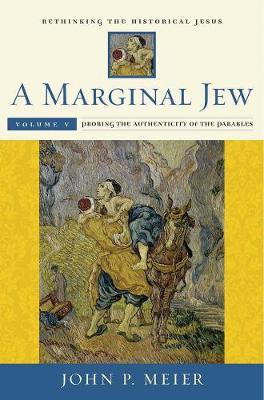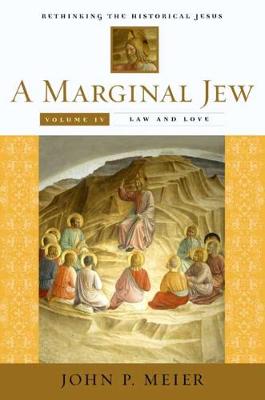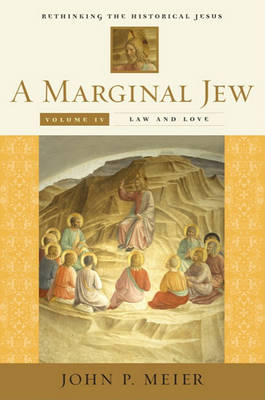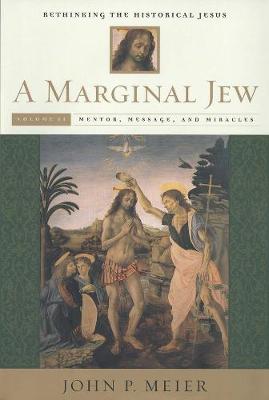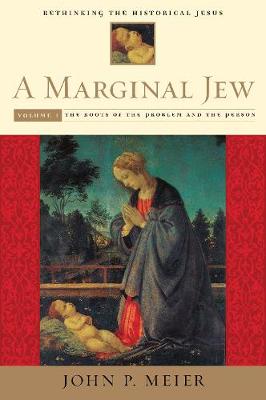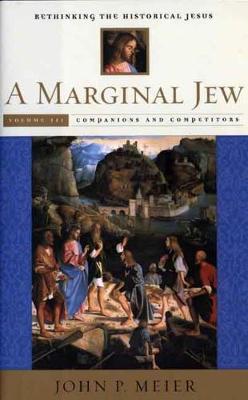The Anchor Yale Bible Reference Library
1 primary work • 6 total works
Book 5
A leading scholar of the historical Jesus clarifies and illuminates Jesus' teachings on Jewish law
John Meier's previous volumes in the acclaimed series A Marginal Jew are founded upon the notion that while solid historical information about Jesus is quite limited, people of different faiths can nevertheless arrive at a consensus on fundamental historical facts of his life. In this eagerly anticipated fourth volume in the series, Meier approaches a fresh topic-the teachings of the historical Jesus concerning Mosaic Law and morality-with the same rigor, thoroughness, accuracy, and insightfulness on display in his earlier works.
After correcting misconceptions about Mosaic Law in Jesus' time, this volume addresses the teachings of Jesus on major legal topics like divorce, oaths, the Sabbath, purity rules, and the various love commandments in the Gospels. What emerges from Meier's research is a profile of a complicated first-century Palestinian Jew who, far from seeking to abolish the Law, was deeply engaged in debates about its observance. Only by embracing this portrait of the historical Jesus grappling with questions of the Torah do we avoid the common mistake of constructing Christian moral theology under the guise of studying "Jesus and the Law," the author concludes.
A Marginal Jew: Rethinking the Historical Jesus, Volume II
by John P Meier
This book is the second volume in John Meier's masterful trilogy on the life of Jesus. In it he continues his quest for the answer to the greatest puzzle of modern religious scholarship: Who was Jesus? To answer this Meier imagines the following scenario: "Suppose that a Catholic, a Protestant, a Jew, and an agnostic were locked up in the bowels of the Harvard Divinity School library... and not allowed to emerge until they had hammered out a consensus document on who Jesus of Nazareth was and what he intended...". A Marginal Jew is what Meier thinks that document would reveal. Volume one concluded with Jesus approaching adulthood. Now, in this volume, Meier focuses on the Jesus of our memory and the development of his ministry. To begin, Meier identifies Jesus's mentor, the one person who had the greatest single influence on him, John the Baptist. All of the Baptist's fiery talk about the end of time had a powerful effect on the young Jesus and the formulation of his key symbol of the coming of the "kingdom of God." And, finally, we are given a full investigation of one of the most striking manifestations of Jesus's message: Jesus's practice of exorcisms, hearings, and other miracles. In all, Meier brings to life the story of a man, Jesus, who by his life and teaching gradually made himself marginal even to the marginal society that was first century Palestine.
In this definitive book on the real, historical Jesus, one of our foremost biblical scholars meticulously sifts the evidence of 2,000 years to portray neither a rural magician nor a figure of obvious power, but a marginal Jew.
A Marginal Jew: Rethinking the Historical Jesus, Volume III
by John P Meier
No man is an island, not even Jesus, as John Meier writes in Companions and Competitors, the third installment of his four-part series, A Marginal Jew: Rethinking the Historical Jesus. The first volume, an overview of Jesus' background, chronology, and early years, was followed by a second that analyzed Jesus' most important messages and deeds. Here, Meier explains his conviction that "No human being is adequately understood if he or she is considered in isolation from other human beings." He leads readers through the concentric circles of companions (including the followers who became his disciples and apostles) and competitors (such as Pharisees, Sadducees, Essenes, Samaritans) that shaped Jesus' life in first-century Palestine. Meier, a priest and New Testament scholar at Notre Dame, writes in the engaging, methodical style of an astringently avuncular professor: chapters are carefully outlined, with straightforward headings such as "Points of Comparison and Contrast," "Caveats on Comparisons," and "The Sheer Oddness of Jesus"). His findings, particularly his explanation of "the essentially Jewish nature" of Jesus' relationships, are a valuable addition to the field of Historical Jesus scholarship.
